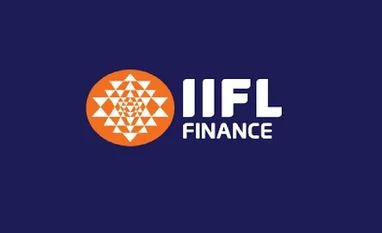CARE Ratings downgrades IIFL Finance's long-term instruments to "AA-"
The rating agency, in a statement placed on its website, said the assets under management (AUM) of IFL's gold business shrunk to Rs 14,727 crore as of June 30, 2024
)
CARE Ratings has downgraded the rating for IIFL Finance Ltd’s (IFL) long-term instruments from “AA” to “AA-” | Photo: Facebook
Listen to This Article
CARE Ratings has downgraded the rating for IIFL Finance Ltd’s (IFL) long-term instruments from “AA” to “AA-” due to a decline in the non-bank lender's gold loan book, following earlier restrictions on this business by the Reserve Bank of India (RBI). The rating action came shortly after the RBI lifted the curbs imposed on March 4, 2024.
The rating agency, in a statement placed on its website, said the assets under management (AUM) of IFL’s gold business shrunk to Rs 14,727 crore as of June 30, 2024, from Rs 23,354 crore as of March 31, 2024, due to the RBI’s restrictions on the gold business. This has led to a moderation in the financial flexibility of the group and affected the profitability of the company and its liability franchise. Gold loan AUM constituted 72 per cent of IIFL’s standalone AUM and 21 per cent of the consolidated AUM as of June 30, 2024.
Although the RBI has allowed IIFL to resume the gold loan business, the company’s ability to profitably rescale the business and regain its lost market share amidst a competitive landscape will be a key monitorable, the rating agency said.
CARE said it continues to factor in the comfortable capital structure at the consolidated level, strong institutional ownership, a diversified loan portfolio, and an experienced management team. However, these rating strengths are partially offset by moderate asset quality and profitability parameters.
It assigned a “Stable” outlook to the ratings. The outlook reflects an expectation of improvement in the company’s financial performance while maintaining diversification in its retail lending portfolio. Additionally, capitalisation levels are expected to remain comfortable.
At the standalone level, IIFL reported a capital adequacy ratio (CAR) of 27.81 per cent as of June 30, 2024, compared to the regulatory CAR requirement of 15 per cent, indicating an adequate capital cushion. The increase in the CAR ratio at the standalone level was primarily due to the decrease in AUM following the RBI’s earlier action on its gold loan business and fresh capital raised through a rights issue of equity shares.
More From This Section
Topics : Reserve Bank of India CARE Ratings IIFL IIFL Group
Don't miss the most important news and views of the day. Get them on our Telegram channel
First Published: Sep 20 2024 | 2:35 PM IST